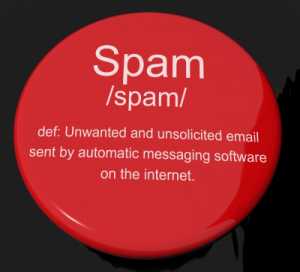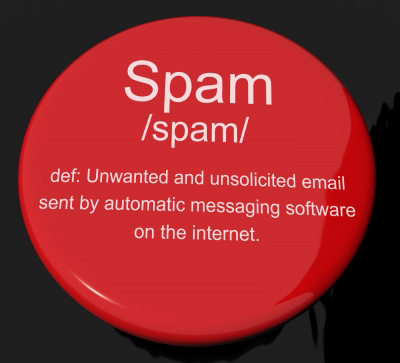Just a note about SPAM policies and hosting providers. Imagine that you go online to check your company email and you are not permitted to log in to your account. Many thoughts go through one’s mind, notably, ‘could the server be down?’, ‘did my webmaster change my password without notifying me?’, or ‘jeez, is my website still there?’ So you decide to look at your home page and you see the words:
ACCESS DENIED. Your account has been suspended.
Account Suspension is a polite phrase that means, “you have been kicked out of the clubhouse.” But what is the problem? What has my webmaster done (or NOT done) to allow this transgression? Customer technical support is contacted, and to your great surprise you learn that you have been caught sending unwanted commercial emails to unsuspecting people and your name has been blacklisted. Better yet, one of your competitors was a recipient of your email and they were in the mood to make an example of you. Your sitehost receives the directive to suspend your site, and they may or may not allow you to gather up your belongings before tossing you from the server.
Zero-Tolerance Spam Policies
Many hosting providers (and domain registrars) make no bones about shutting you down for violating their Zero-Tolerance SPAM Policy. You are found guilty of violating the Terms of Service and you are shut down without warning. If you have an otherwise spotless history and cordial relationship with the site host, you may have better luck getting your website back. An example of an across-the-board anti-SPAM policy :
Sites advertised via SPAM (Spamvertised) may not be hosted on our servers. This provision includes, but is not limited to SPAM sent via fax, phone, postal mail, email, instant messaging, or usenet/newsgroups. Any account which results in our IP space being blacklisted will be immediately suspended and/or terminated.”
Are you purchasing the services of an email address provider that advertises online? Do you know how they harvested the email addresses? Is your website’s link in the body of the email? Even if you hired a service in good faith because their website claims they have thousands of potential customers eagerly awaiting your sales pitch in their Inbox, you owe your company and reputation a little due diligence. Ask how their email addresses have been harvested. Email stripping programs steal addresses from the internet for the purpose of sending unsolicited email messages. The host involved in this example does not allow mass emailing. The first promise you need to make when pleading with tech support for assistance will be that you will prevent mass emailing from recurring (forever).
 Opt-In Lists
Opt-In Lists
It is not illegal to allow your visitors to ask to be included in your email newsletter list. There are some very effective software plug-ins for WordPress that are easy to use. In this case, emails are sent from your host mailserver, but these are confirmed, opted-in and willing recipients. Be certain that your email rate (1 email sent every 8 seconds, for instance) does not violate your host’s recommendations, and you’re good to go. All mails contain ‘unsubscribe’ links that you do not have to monitor at all.
Reputation Repair
Whether you thought your email list provider seemed reputable or not, getting blacklisted is serious for your company and all who associate with you. Your email list service must immediately cease all further mailing using your domain link forever.
FTC Guidelines
The Federal Trade Commission Bureau of Consumer Protection provides an informative guide called The CAN-SPAM Act: A Compliance Guide for Business.
Image courtesy of Stuart Miles at FreeDigitalPhotos.net

